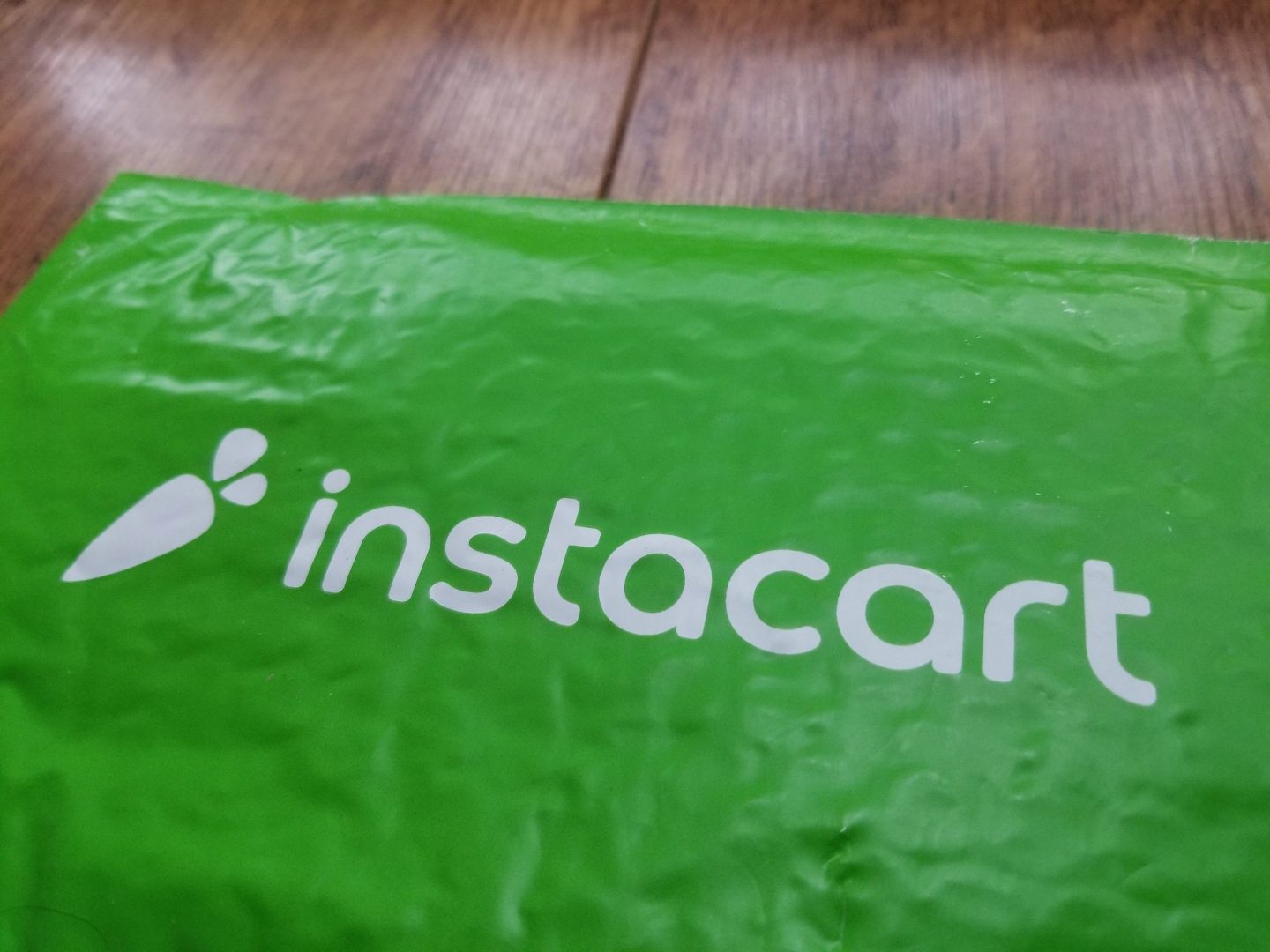Typically an IPO day is all bell ringing, celebration, and whatnot. Venture capitalists are getting ready to cash out on shares they’ve been holding onto for a really long time (post-lockup period, of course). Limited partners are preparing to get a hefty distribution in their pockets and deciding where they’ll put that capital to work next. Founders and employees get to waltz around the Nasdaq building, ringing the listing bell and getting their photos taken, and everyone tells them something along the lines of “Good job—we always knew this day would come,” and pats them on the back. And hey–even journalists like me have something to get excited about: After years of secrecy, it’s always fun when these mega-private companies finally start to disclose their financials, payment agreements, and key business risks (you truly never know what sort of absurdities you’ll uncover in a measly footnote).
But alas, this is 2023, and not everyone is quite as thrilled about a good ole IPO as in years past. Instacart, expected to list today under the ticker “CART,” was worth some $39 billion back in 2021, when people were working from home and madly ordering groceries on their smartphones. The company has taken an approximately 75% haircut since then in valuation, and advertising is now a significant portion of its business. Some of Instacart’s investors may spend this evening tallying disappointing figures in an Excel spreadsheet rather than pouring champagne with their colleagues.
Instacart is still a decacorn (okay—almost). Last night, it officially priced its shares at $30, giving it a $9.9 billion valuation. But, let’s be clear, there are winners and there are losers with this IPO. Obviously, there is Instacart’s founder, Apoorva Mehta, who will still own 10% of the company post-IPO (Mehta stepped back as CEO in 2021, with Fidji Simo replacing him as chief executive, as Fortune detailed in a 2021 feature story. Mehta remains chairman of the board, though Simo will replace him as chair post-listing.)
But the clear winners are also Instacart’s earliest backers, who I imagine would be raving over any valuation superseding $1 billion, as it will be a windfall however you look at it. Y Combinator would be one, which welcomed a fledgling Instacart into its batch (albeit late) in 2012. Then there is Khosla Ventures, which led the seed for Instacart that same year, and then participated in the A, B, and C rounds. There’s a slew of others. Sequoia Capital, which led the Series A, is Instacart’s largest investor. Garry Tan, Sam Altman, SV Angel, and Haystack all invested very early on.
Any investments made into Instacart in 2020 and beyond—when Instacart was valued at $13.8 billion and above—are hurtling towards losses. VC and other investment firms have barreled at least $790 million into the company since then.
As for the losers, it’s not quite so cut and dried, as some investors have backed Instacart in both early and late-stage rounds. Only Sequoia and D1 Capital Partners, as the two largest venture shareholders, had to disclose their total positions in the IPO filings, though they don’t have to break out the size of all the checks they wrote into each round they joined. It’s unclear how hedge fund D1 Capital Partners, for one, will fare in the listing. The firm first invested in 2018, according to PitchBook, leading a $871 million round at a $7.9 billion valuation. But then it also co-led two subsequent rounds, one in 2020 at a $17.7 billion valuation and one in 2021 at a $39 billion valuation, though the amount of capital raised in those rounds was smaller. All that to say, we don’t know whether D1’s collective 36.8 million shares are worth more or less than what the firm first paid for them. (D1 declined to comment.)
What we do know is that investors that only backed Instacart in its last few rounds—i.e. T. Rowe Price and General Catalyst—should be posting losses on their Instacart investments, absent a remarkable valuation recovery on the public markets before those firms sell their stakes. (The Wall Street Journal has a good story laying out some of those investors here)
Instacart is a case in point of why some firms have been leaning on early-stage investments during the downturn. Price discovery gets pretty important the closer you get to an IPO, where you can rack up losses pretty fast.
Investor at center of new SEC charges against Lyft…The SEC yesterday charged Lyft for failing to disclose information about a $424 million pre-IPO share sale in advance of the company’s public listing in March 2019. One of Lyft’s board members at the time (an investor) oversaw the transaction. While the SEC didn’t name the board member in the complaint, the regulator said the board member stepped down in March 15, 2019—exactly when Lyft said in SEC filings that Jonathan Christodoro of Patriot Global Management resigned from Lyft’s board. Christodoro, Patriot Global, and Lyft didn’t respond to requests for comment. (You can read more on that here)
The Impact 20…As we did in 2020 and 2021, Fortune is publishing the Impact 20—a list featuring companies from around the world that are doing well by doing good. They’re using the creative tools of business to help the planet and tackle society’s unmet needs—and they’re earning a profit while doing so. Readers can nominate companies (their own or someone else’s) until Oct. 23 by using this Google form. Have questions? Reach out to Matt Heimer and Erika Fry at impact20@fortune.com. And you can check out the 2021 list here.
See you tomorrow,
Jessica Mathews
Twitter: @jessicakmathews
Email: jessica.mathews@fortune.com
Submit a deal for the Term Sheet newsletter here.
Joe Abrams curated the deals section of today’s newsletter.
VENTURE DEALS
- Helsing, a Berlin, Germany-based AI-powered defense technology company, raised €209 million ($223 million) in Series B funding. General Catalyst led the round and was joined by Saab.
- Writer, a San Francisco-based platform designed to help companies integrate AI into all aspects of their business, raised $100 million in Series B funding. ICONIQ Growth led the round and was joined by WndrCo, Balderton Capital, Insight Partners, Aspect Ventures, and others.
- HiddenLayer, an Austin, Texas-based security platform to protect a company’s AI models and assets, raised $50 million in Series A funding. M12, Microsoft’s Venture Fund, and Moore Strategic Ventures led the round and were joined by Booz Allen Ventures, IBM Ventures, Capital One Ventures, and Ten Eleven Ventures.
- Bastion, a San Francisco-based startup for companies to integrate blockchain technology and crypto wallets into their infrastructure, raised $25 million in seed funding. a16z crypto led the round and was joined by Laser Digital Ventures, Robot Ventures, Not Boring Capital, and others.
- HyperJar, a London, U.K.-based money management app, raised $24 million in Series A funding from Susquehanna Private Equity Investments and the Healthcare of Ontario Pension Plan.
- Yurts, a San Francisco-based developer of an AI platform designed to write documents, organize information, and provide chatbots for companies, raised $16 million in Series A funding. Nava Ventures led theround and was joined by XYZ Ventures, Bloomberg Beta, Mango Capital, and Essence VC.
- Betterleap, a San Francisco-based platform designed to help recruiters source and communicate with candidates more efficiently by using AI, raised $13 million in seed funding. a16z and Peak State Ventures led the round and were joined by Streamlined Ventures, Active Capital, Air Angels, and Stipple Capital.
- Paxton, a Portland-based generative AI legal assistant for law professionals, raised $6 million in seed funding. WVV Capital led the round and was joined by Kyber Knight, 25Madison, AI Fund, Voyager Capital, and others.
- Aspinity, a Pittsburgh, Penn.-based startup that manufactures AI chips for automobiles, home security systems, and industrial machines, raised $5 million in Series B funding from Anzu Partners, Birchmere Ventures, Mountain State Capital, Riverfront Ventures, and new investor Unitrontech.
- Discern Security, a Sunnyvale, Calif.-based cybersecurity platform for companies to monitor security and manage security policy through the use of AI, raised $3 million in seed funding from BoldCap, WestWave Capital, Cyber Mentor Fund, Security Syndicate, and others.
- Pliable, a San Francisco-based AI-powered platform that organizes and leverages company data without the need for data engineers, raised $2.5 million in seed funding. Resolute Ventures led the round and was joined by CEAS and other investors.
- Catalyte, a Baltimore, Md.-based AI-powered platform connecting employers with talent, raised $1.5 million in funding from Green Street Impact Partners.
PRIVATE EQUITY
- Bluestone Equity Partners acquired a minority stake in RWS Global, a New York City-based provider of live shows, destinations, and other experiences. Financial terms were not disclosed.
- E Source, backed by Align Capital, acquired Utilligent, an Irvine, Calif.-based management consulting firm for utilities companies. Financial terms were not disclosed.
- GS Foods Group, backed by Highview Capital and A&M Capital Partners, acquired Lamm Food Service, a Lafayette, La.-based food distributor. Financial terms were not disclosed.
- Perspecta, backed by 5th Century Partners, merged with TalisPoint, a San Francisco-based data and insurance services provider. Financial terms were not disclosed.
EXITS
- Ontario Teachers’ Pension Plan acquired a majority stake in GreenCollar, a The Rocks, Australia-based environmental consultant and advisor on carbon farming projects, from KKR. Financial terms were not disclosed.
OTHER
- Buildkite agreed to acquire Packagecloud, a Las Vegas-based platform for companies to store their software and distribute it to clients. Financial terms were not disclosed.
- Casafari acquired Targomo, a Berlin, Germany-based software developer using AI to help businesses and retailers gather data on real estate and property. Financial terms were not disclosed.
- General Atomics acquired EO Vista, an Acton, Mass.-based developer of the sensors used in satellites and aircraft. Financial terms were not disclosed.
IPOS
- Klaviyo, a Boston, Mass.-based marketing and data automation provider, now plans on raising up to $556.8 million in an offering of 19.2 million shares priced between $27 and $29. Summit Partners, Shopify, and Accomplice back the company.
FUNDS + FUNDS OF FUNDS
- Lowercarbon Capital, a Jackson, Wyo.-based venture capital firm, raised $550 million for two new funds focused on companies working to remove carbon from the environment.
- Cortado Ventures, an Oklahoma City, Okla.-based venture capital firm, raised $80 million for their second fund focused on early-stage tech companies in the logistics, energy, life sciences, and future of work industries.
PEOPLE
- Recharge Capital, a New York City-based venture capital firm, hired Margaret Wang as managing partner. Formerly, she was with Bridgewater Associates Singapore.
- Silversmith Capital Partners, a Boston, Mass.-based private equity firm, hired Jennifer Karl as vice president of operations and John O’Connor as a senior associate. Formerly, Karl was with Jefferies and O’Connor was with TA Associates.
- Spark Capital, a Boston, Mass.-based venture capital firm, hired Natalie Vais as a general partner. Formerly, she was with Amplify Partners. The firm also promoted Fraser Kelton and Clay Fisher to general partner. Formerly, Kelton was with OpenAI and Fisher was with Allen & Co.
Correction, Sep. 19, 2023: The online edition of this newsletter has been corrected to reflect that Bastion is located in San Francisco.
This is the web version of Term Sheet, a daily newsletter on the biggest deals and dealmakers. Sign up to get it delivered free to your inbox.













